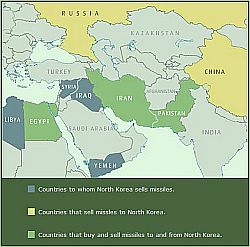North Korea and the Bush Administration’s Toxic Legacy
Over the last several weeks there has been considerable re-evaluation of the Iraq War, launched ten years ago by the Bush Administration. Eulogies and opinions from pundits of all types ranged from “I told you so,” to “It was a qualified success.”
We all know what the truth is without punditry: the war was a bolloxed-up mess before it began, and its outcome is tragic no matter the angle from which one views the results.
But with all the reassessment of the Bush years and its policies on Iraq, there’s been little revisiting of tangential foreign policies and their equally disturbing outcomes.
In particular, in spite of the ramped up threats of nuclear missile deployment, the damage of Bush policies on North Korea have not been discussed.
North Korea has been able to grow its nuclear program primarily because the Bush administration abruptly vacated the previous Clinton administration policy of engagement — in March 2001, a dozen years ago this month. Bush told a shocked South Korean president Kim Dae Jung about this unanticipated policy change in private during a summit. To reporters and the public at large, Bush says,
“Part of the problem in dealing with North Korea, there’s not very much transparency. We’re not certain as to whether or not they’re keeping all terms of all agreements.”
At the end of 2002, North Korea kicked out all IAEA inspectors — those which had been monitoring NK’s nuclear program under the Clinton administration’s previously negotiated 1994 Agreed Framework — thereby eliminating any transparency just as North Korea removed monitoring devices and seals from their nuclear program equipment.
In 2003, the Bush administration entered Six-Party talks with NK; the talks were on-again-off-again until 2009, when NK walked away entirely from discussions. Visiting U.S. scientists were allowed to see functioning uranium enrichment equipment in 2010. Read more →

